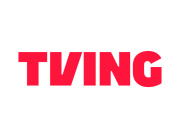Yvonne Yancy, CAO of the Understood Organization, discusses how she empowers individuals with learning differences and their families and employers.
What is Understood and its mission?
Understood is a social impact organization focused on helping the approximately 70 million people in the U.S., one in five people in this country, who have learning and thinking differences. Understood is the only entity that holistically addresses this set of diagnoses and experiences. We provide the resources and tools to help those with learning and thinking differences across their entire life cycle, parents, teachers, physicians, and any stakeholder in the community who is supporting someone with learning and thinking differences.
Tell us more about your position at Understood?
At Understood, I wear a couple of different hats. I serve as Chief Administrative Officer, and in that capacity, I run the human resources, finance, legal operations, and IT for our organization. I also run our workplace initiative. Understood has developed an impressive set of training tools and resources for employers to help them navigate their employee population with learning and thinking differences. And I’m excited to lead this project.
What type of change are you planning to implement while on the Understood team?
I have a couple of different things I want to focus on for the organization. The primary focus is ensuring that we have exceptional and diverse talent, both from a thought perspective and in actual diversity. That’s an ongoing conversation and one that we actively and proactively work toward. I also work to ensure that we have an employment culture that supports all our employees effectively and then proactively. We have many employees who have learning and thinking differences – we genuinely walk the walk when it comes to recruiting, hiring, and supporting the neurodiverse in the workplace. And so, we strive to be the best in class and set the standard on what that employment development experience looks like. My third hat is working to help our workplace team deliver exceptional resources to employers who want to address this issue in their workplace the way we have. And so, at the end of the day, we want to create—we want to operate, as an employer, the same way we help coach other employers to work. And that’s a huge focus of my attention and day-to-day.
Why are learning and thinking differences not being discussed in the Black community?
There’s a stigma to learning and thinking differences in every community. It’s amplified in the Black community because there are so few positive role models and examples of people with learning and thinking differences who have been successful and have lived lives or experiences that others want to replicate. And so, because of that, it’s something we don’t talk about. We try to hide it and push back on the teachers, physicians, or stakeholders who might initiate a diagnosis. There’s a fear that if there’s a diagnosis, that you’ll be offering some subpar educational experience, which often happens to people of color and, Black people specifically, in many of our school systems. There’s a strong denial and a firm rejection of anything that would suggest that your child or your loved one is “an other.” Because of that, Black kids often miss out on the available resources and benefits because we’ve rejected the idea of the diagnosis.
What fuels your passion for helping people with learning and thinking differences?
As a Black woman, I clearly understand what it’s like to be “othered” and not be included. And that isn’t an experience that’s unique to me because I’m a woman, and I’m also Black. I know many other people have had that experience, for example, some family members, who have been hugely impactful on my life. For instance, I have a great uncle who has since passed, who was born deaf. Initially, there was no place for Black children who were deaf to go during their childhood. So, he had to figure out how to navigate without hearing. And then later, there was a school for children who were deaf, who were Black, but his parents would not allow him to go. They were afraid to let him go to this scary, distant place in the hopes they would care for their child the way they had. So, as an adult, he had figured out how to navigate, drive, spend money, get change back at the bank, and he never had any of the support that he could have had. He could’ve had a truly different life than the one he had.
Employers may overlook people with ADHD or other learning and thinking differently and think it’s a negative trait. So what are some ways employers can change the way they treat people with learning and thinking differences?
Employers can proactively offer their employees resources that address things like ADHD, or any other sort of neurodiversity, or executive function skill. And they can do that by simply asking, ‘do you need accommodation?’ That can take the form of offering speech-to-text software or sending pre-reads in advance of meetings so people can be aware of what’s happening before the meeting starts. Not everyone has the attention to operate on the fly, so they can’t process what’s happening on the fly. There are hosts of low-cost but high-empathy and high-support accommodations employers can offer. And employees will self-select what they need. You’ll find employees who don’t have ADHD or learning and thinking differences might also self-select from those things because people who don’t need it can also benefit from it. And people benefit materially from being in an environment where they know it’s safe to be who they are. So even if you don’t have learning and thinking differences, when you see an employer offer support to those who do, you know they will support you in something else.
What can we expect from Understood in the future?
We have developed a wonderful app called Wunder, a community app we’ve created for individuals, parents, and caregivers to connect and hear from experts and their peers on how to navigate their challenges. In addition, we have exceptional workplace development programs that are available for employers to ensure that their organizations support the one in five with learning and thinking differences. We also have inordinate research and insights that we compile and share across different industries. And so, you can look forward to hearing more as those things launch.
How can people connect with you to learn more and continue to follow Understood?
Visit understood.org & LinkedIn at Yvonne Cowser Yancy, SPHR.
All images provided by Understood.org







Add Comment